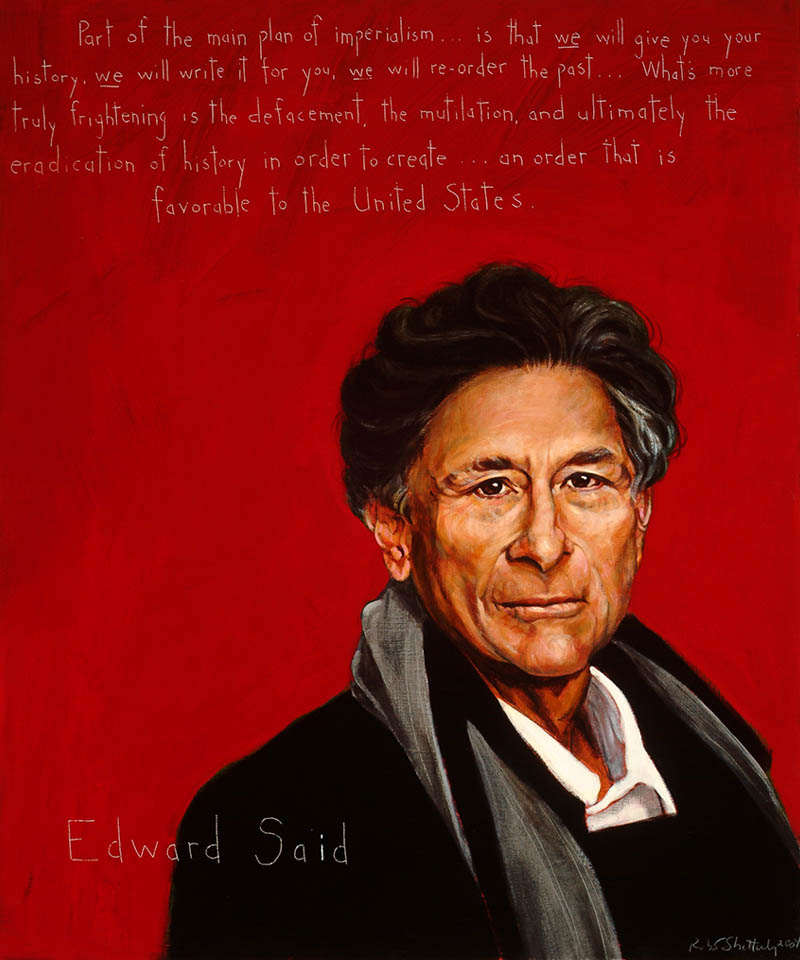
Edward Said
Palestinian Activist, Literary Critic, Writer, Musician : 1935-2003
“Part of the main plan of imperialism… is that we will give you your history, we will write it for you, we will re-order the past…What’s more truly frightening is the defacement, the mutilation, and ultimately the eradication of history in order to create…an order that is favorable to the United States.”
Biography
Edward Said was a teenager when Israeli forces captured West Jerusalem in 1948. His family fled with other Palestinian refugees to Cairo. He eventually attended Princeton and Harvard and settled in the U.S., where he became a professor of comparative literature at Columbia University, a celebrated intellectual, and the leading advocate for Palestinian self-determination.
He wrote his first political essay, “The Arab Portrayed,” in response to Israeli Prime Minister Golda Meir’s declaration in 1969 that “There are no Palestinians.” Said writes that he took on “the slightly preposterous challenge of disproving her, of beginning to articulate a history of loss and dispossession that had to be extricated, minute by minute, word by word, inch by inch.”
That piece launched a lifetime of writing and activism. Said championed the rights of the Palestinian people to determine their own future—while insisting that Palestinians acknowledge the persecution and genocide suffered by the Jews. “[T]he struggle for equality in Palestine/Israel should be directed toward a humane goal, that is, co-existence, and not further suppression and denial,” he wrote.
The most influential of Said’s many books is Orientalism (1978), which denounces “subtle and persistent Eurocentric prejudice against Arabo-Islamic peoples and their culture,” arguing that these biases have served as a justification for the West’s imperial ambitions in the Middle East and Asia.
Said’s activism exiled him from Israel and Palestine for most of his life and provoked criticism in this country. He has been called everything from “the professor of terror” to a Nazi, and his office at Columbia was set on fire. But he persevered, publishing regularly in The Nation, the Arabic newspaper al-Hayat in London, and many other publications. His enduring legacy is the courage to say the most difficult things to the most difficult people in the most difficult circumstances.
Programs
Americans Who Tell the Truth (AWTT) offers a variety of ways to engage with its portraits and portrait subjects. Host an exhibit, use our free lesson plans and educational programs, or engage with a member of the AWTT team or portrait subjects.

Education
AWTT has educational materials and lesson plans that ask students to grapple with truth, justice, and freedom.

Exhibits & Community Engagement
AWTT encourages community engagement programs and exhibits accompanied by public events that stimulate dialogue around citizenship, education, and activism.